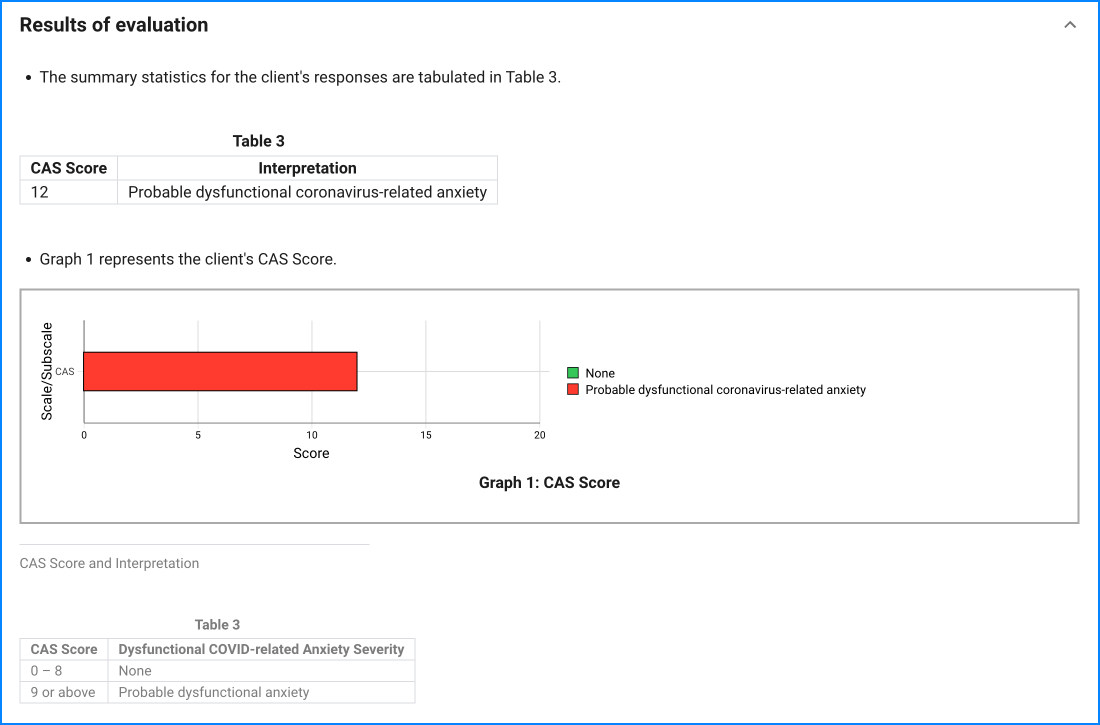Each item of the CAS is rated on a 5-point scale, from 0 (not at all) to 4 (nearly every day), based on experiences over the past two weeks. This scaling format is consistent with the DSM-5’s cross-cutting symptom measure. A CAS total score ≥ 9 indicates probable dysfunctional coronavirus-related anxiety. Elevated scores on a particular item or a high total scale score (≥ 9) may indicate problematic symptoms for the individual that might warrant further assessment and/or treatment. Clinical judgement should guide the interpretation of the CAS results.
The coronavirus anxiety scale (CAS) is a self-report mental health screener of dysfunctional anxiety associated with the coronavirus crisis. Because a significant number of people experience clinically significant fear and anxiety during an infectious disease outbreak, the CAS was developed to help clinicians and researchers efficiently identify cases of individuals functionally impaired by coronavirus-related anxiety.


